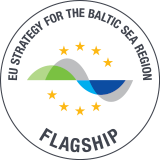These experts provided the theoretical cornerstones of the conference. During the third and last day, 9 breakout sessions and workshops engaged participants in different angles of cultural planning, including:
- artistic action and transformation
- participation
- engagement and activism
- policy and planning related strategies and model
In addition, panel discussions provided new perspectives and gave new insights to trigger change.
Enabling neighbourhoods – creating communities
Eight cases of art and culture driven social innovation from neighbourhoods in the Baltic Sea region were presented and discussed. The workshops focused on the shift from local activist groups to actual change in policy. The empirical source of knowledge was provided from the context of Riga (LV). Here the focus was on the creation of communities and the role of local neighbourhoods.
How to engage citizens? How can urban resilience be strengthened in a time of multiple crises?
The workshop explored the potential of an ‘intentional transformation towards sustainability’, which is mainly bottom – up, driven by ‘unconventional alliances’ (between citizens and institutions as well) at the local level. The issue of transfer-ability of the Riga experience was discussed in the Baltic context, where tradition of engagement does not build on traditions and requires additional commitment. This is where a cultural planning approach is the way to go.
Cultural Activators for a vision of a Sustainable City
The focus of the workshop was the role of the artists and creative practitioners in the development and sustenance of Sustainable, Creative Cities. We addressed the roles of artists and creative workers in the evolution of globalised cities, assessing how an ‘artistic mode of knowing’ can contribute to a transition from creative cities to sustainable creative cities. The workshop was led by Sasha Kagan, researcher and writer on the transdisciplinary perspective of ‘Arts and (un)sustainability’.
Urban Walks in Kiel
A practical approach to cultural mapping was experienced through specific city walks. These were designed and conducted in cooperation with the Muthesius University of Fine Arts and Design (MKH) and the City of Kiel, as well as with other networks working at the intersection of art and design and urban society. The participants had the possibility to select one out of several parallel 2,5 hours urban walks.








